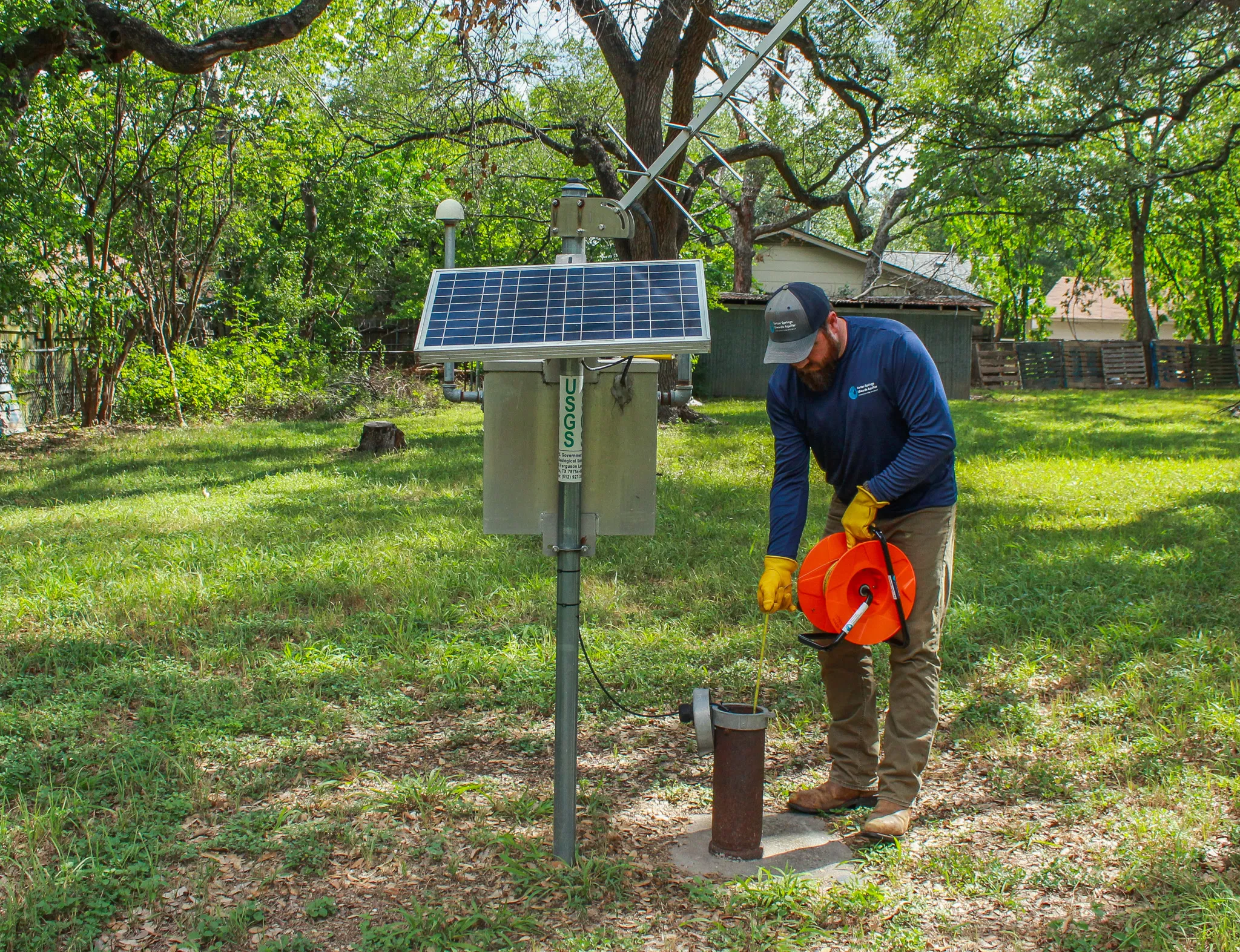Copyright The Austin Chronicle

It’s not a secret that Texas is running out of water. By 2070, our municipal demand is projected to outstrip the water that exists in our state by over 3 million acre-feet. The gargantuan Ogallala Aquifer, providing West Texas with water, will likely deplete within our lifetimes and takes centuries to recharge. In Austin, as summer turns to autumn, drought has resurged with the fifth-driest September on record. Austin’s local groundwater conservation district has declared the Edwards Aquifer to be in “exceptional drought” for only the second time in history, as of Oct. 1. “The winter months are some of our driest, and so with the way things are right now, we expect to see [ground]water levels to continue to gradually decline,” Shay Hlavaty of the Barton Springs-Edwards Aquifer Conservation District said. Hydrologists say the solutions for the state’s water problem are to conserve what we have and procure or create new sources of water, and the Texas Legislature has chosen to invest serious money into both. During this year’s session, lawmakers passed House Joint Resolution 7 and the accompanying Senate Bill 7, proposing a new constitutional amendment to give $20 billion over 20 years to the Texas Water Fund – a long-term investment that will attempt to close the gap on our future demand for water. Amendments to the state constitution must be voted on by Texans, and so HJR 7 will appear as Proposition 4 on ballots Nov. 4. Though oddly not clear in the ballot language, Prop 4 proposes that the state spend $1 billion a year, from 2027 to 2047, on water-creating and conserving projects across the state. The money will come from state sales tax revenue and doesn’t raise or create new taxes for Texans. If Prop 4 is approved by voters, SB 7 kicks in and gives the Texas Water Development Board, appointed by Gov. Greg Abbott, authority over how the funds will be spent and on what projects, which must be a 50/50 split between “new water supply” projects (mainly through expensively purifying very dirty water or seawater back into drinking water) and implementing the State Water Plan, which includes water conservation and reuse projects and is created by several regional planning groups across the country. The money can also go toward fixing leaky pipes and infrastructure across the state, which currently lose 186 billion gallons of water annually – enough to fill a large reservoir. “Even fixing one leaky pipe can make a great impact for a neighborhood,” Evgenia Spears of the Sierra Club said. On the “new water” side, Prop 4 would also fund massive marine desalination plants, built along the Texas coast – a controversial project among environmentalists. The salt is removed from water taken from the Gulf of Mexico and purified into drinkable water. That salt has to go somewhere though, and the brine (extremely salty water) these plants produce is usually either buried underground, pumped back out into the sea (either close to the shore or far out, via huge pipes), or dumped into inland bays and estuaries along the coast. Spears said that when brine is dumped into bays and estuaries, the salt can kill marine life and even endangered species that call those pools home. Unlike when it’s piped back out in the Gulf, the water doesn’t mix and dilute quickly enough in a smaller body of water. Moreover, Spears emphasized that the Texas Commission on Environmental Quality’s salinity standards for the discharge of brackish water from marine desalination are “close to nonexistent,” which should be part of the state’s surface water quality standards. But, Spears said, no updates on salinity are expected in the next revision of those standards. “So until the TCEQ develops strong, enforceable, and very clear standards for salinity, we can’t safely and responsibly embark on seawater desalination,” Spears emphasized. “A lot more work needs to be done, and Texas is simply not ready yet.” Nonetheless, other experts view marine desalination as a necessary and relatively sustainable step for our future water – the ocean won’t soon dry up like aquifers will – but agree that the brine needs to be disposed of responsibly. Preferably, piped over 3 miles out into the Gulf. Another project listed in SB 7 is the purification of “produced” water, the immense amount of water used (around 33 million barrels every day in Texas) to push oil and gas out of the earth in the fracking process. That is very dirty water, and yet remains another strategy prompted by the state’s desperation for new water sources. Nevertheless, Spears said that scientists don’t know exactly what chemicals are in it, and therefore don’t know exactly how to treat the water, due to oil and gas companies not being required by the state of Texas to report that chemical information. “We’re talking about heavy metals, organic and inorganic compounds, and even radioactive materials, plus that set of unknown chemicals,” Spears emphasized. “We understand that Texas needs to unlock new water supplies, but we are for responsible approaches, sustainable approaches,” Spears continued. “And due to lacking regulations or lacking science, many … are not responsible or sustainable at this moment.” Prop 4 will create a steady stream of funding to fix much-needed water infrastructure and water reuse projects in the state, but environmental organizations like the Sierra Club and the Texas Water Foundation urge Texans to watch how the funds are used, to ensure that the state doesn’t use our green light to funnel billions toward projects that only further hurt the environment. “It’s important that Texans know that they have a say in how these funds are allocated,” Spears said. “Proposition 4 is public money, and it needs to work for the people – not special interests.” This article appears in October 24 • 2025.



